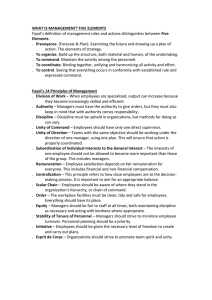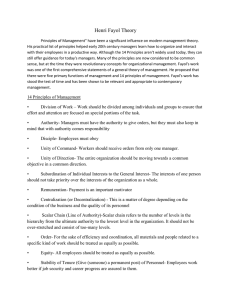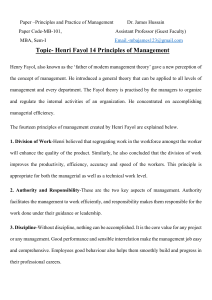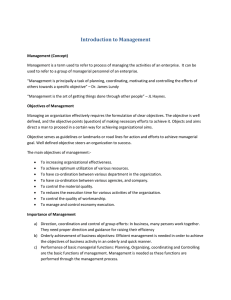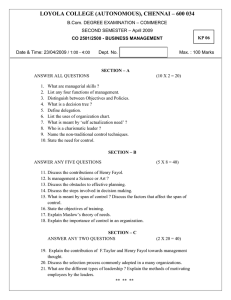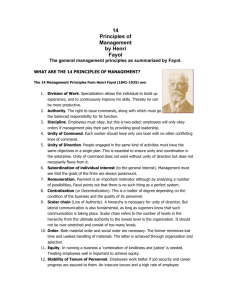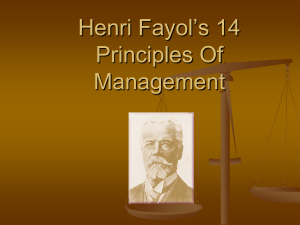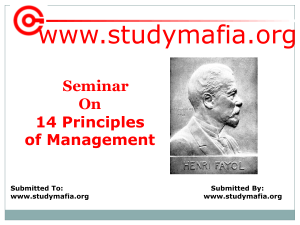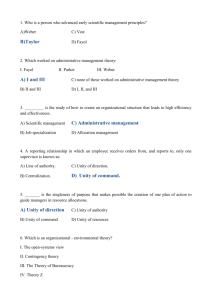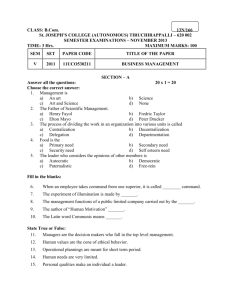what is the evolution of administrative management theory?
advertisement
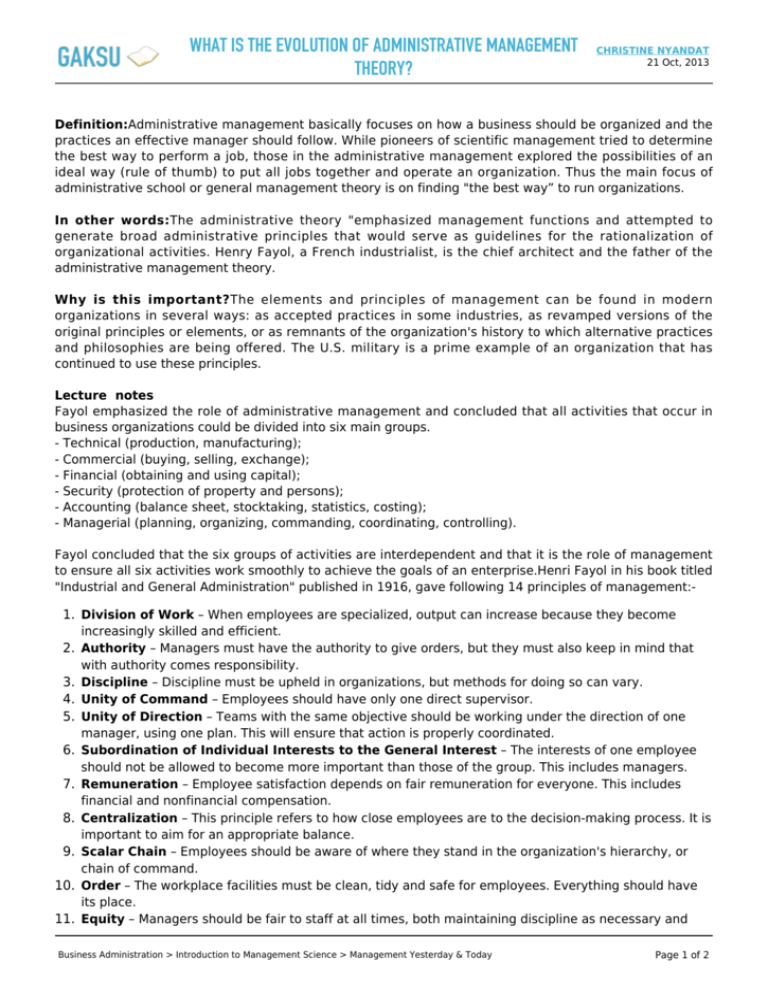
WHAT IS THE EVOLUTION OF ADMINISTRATIVE MANAGEMENT THEORY? CHRISTINE NYANDAT 21 Oct, 2013 Definition:Administrative management basically focuses on how a business should be organized and the practices an effective manager should follow. While pioneers of scientific management tried to determine the best way to perform a job, those in the administrative management explored the possibilities of an ideal way (rule of thumb) to put all jobs together and operate an organization. Thus the main focus of administrative school or general management theory is on finding "the best way” to run organizations. In other words:The administrative theory "emphasized management functions and attempted to generate broad administrative principles that would serve as guidelines for the rationalization of organizational activities. Henry Fayol, a French industrialist, is the chief architect and the father of the administrative management theory. Why is this important?The elements and principles of management can be found in modern organizations in several ways: as accepted practices in some industries, as revamped versions of the original principles or elements, or as remnants of the organization's history to which alternative practices and philosophies are being offered. The U.S. military is a prime example of an organization that has continued to use these principles. Lecture notes Fayol emphasized the role of administrative management and concluded that all activities that occur in business organizations could be divided into six main groups. - Technical (production, manufacturing); - Commercial (buying, selling, exchange); - Financial (obtaining and using capital); - Security (protection of property and persons); - Accounting (balance sheet, stocktaking, statistics, costing); - Managerial (planning, organizing, commanding, coordinating, controlling). Fayol concluded that the six groups of activities are interdependent and that it is the role of management to ensure all six activities work smoothly to achieve the goals of an enterprise.Henri Fayol in his book titled "Industrial and General Administration" published in 1916, gave following 14 principles of management:- 1. Division of Work – When employees are specialized, output can increase because they become increasingly skilled and efficient. 2. Authority – Managers must have the authority to give orders, but they must also keep in mind that with authority comes responsibility. 3. Discipline – Discipline must be upheld in organizations, but methods for doing so can vary. 4. Unity of Command – Employees should have only one direct supervisor. 5. Unity of Direction – Teams with the same objective should be working under the direction of one manager, using one plan. This will ensure that action is properly coordinated. 6. Subordination of Individual Interests to the General Interest – The interests of one employee should not be allowed to become more important than those of the group. This includes managers. 7. Remuneration – Employee satisfaction depends on fair remuneration for everyone. This includes financial and nonfinancial compensation. 8. Centralization – This principle refers to how close employees are to the decision-making process. It is important to aim for an appropriate balance. 9. Scalar Chain – Employees should be aware of where they stand in the organization's hierarchy, or chain of command. 10. Order – The workplace facilities must be clean, tidy and safe for employees. Everything should have its place. 11. Equity – Managers should be fair to staff at all times, both maintaining discipline as necessary and Business Administration > Introduction to Management Science > Management Yesterday & Today Page 1 of 2 WHAT IS THE EVOLUTION OF ADMINISTRATIVE MANAGEMENT THEORY? CHRISTINE NYANDAT 21 Oct, 2013 acting with kindness where appropriate. 12. Stability of Tenure of Personnel – Managers should strive to minimize employee turnover. Personnel planning should be a priority. 13. Initiative – Employees should be given the necessary level of freedom to create and carry out plans. 14. Esprit de Corps – Organizations should strive to promote team spirit and unity. Fayol's six primary functions of management, which go hand in hand with the Principles, are as follows: 1. 2. 3. 4. 5. 6. Forecasting. Planning. Organizing. Commanding. Coordinating. Controlling. Business Administration > Introduction to Management Science > Management Yesterday & Today Page 2 of 2
